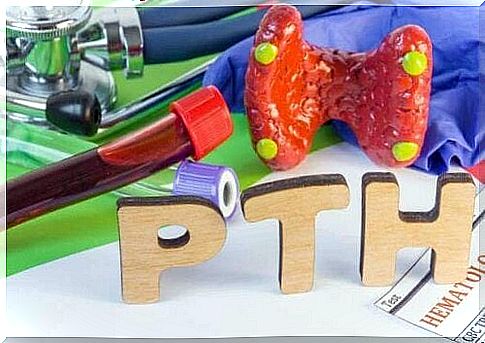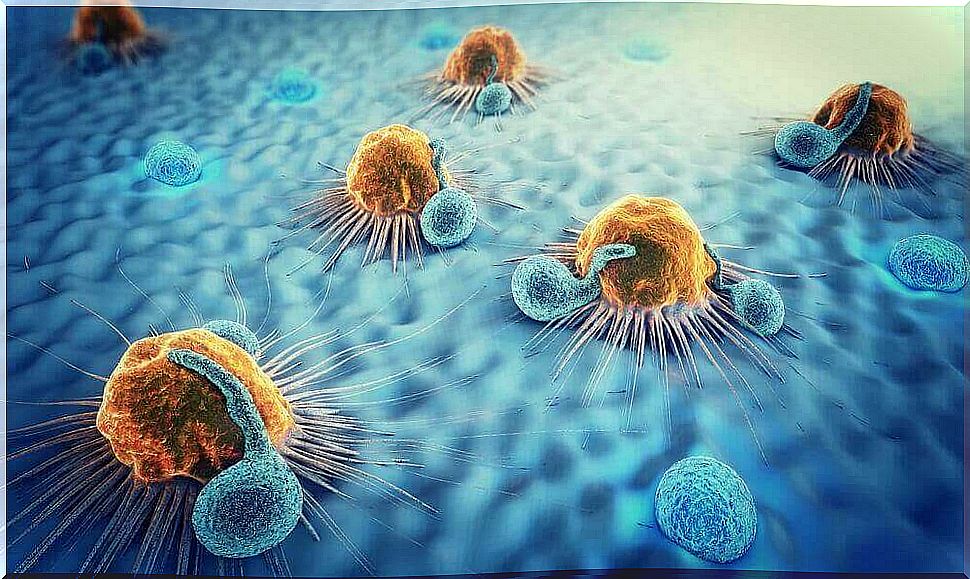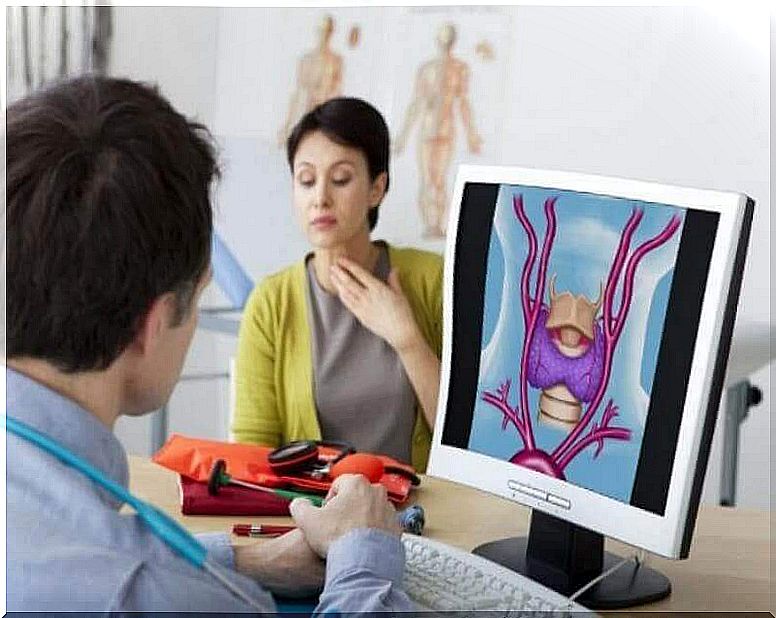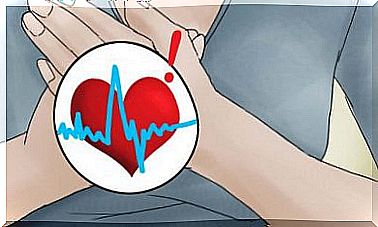What You Need To Know About Hypoparathyroidism

In today’s article, we’ll tell you everything you need to know about hypoparathyroidism, an endocrine disorder that causes an imbalance in the thyroid gland. This condition causes the thyroid to produce very little PTH (parathyroid hormone).
As a result, calcium levels decrease, while at the same time phosphorus levels become higher than normal. While hypoparathyroidism can appear as an isolated pathology, it can sometimes be associated with another type of disease.
Unlike other types of thyroid disease that are relatively common, hypoparathyroidism is considered rare.
Despite the fact that it does not occur with the same frequency as other thyroid disorders, the severity of the complications that can arise after diagnosing hypoparathyroidism makes addressing this condition essential, given its importance.
What you need to know about hypoparathyroidism: the causes
The article Pillars for Approaching and Treating Patients with Hypoparathyroidism lists some of the causes of this endocrine disorder. In 75% of cases, the condition occurs after surgery. This is the most common cause, but there are others:
- Autoimmune: Hypoparathyroidism can occur as a result of the use of immunotherapy to treat a certain disease, such as cancer, for example.
- Functional: Increased or insufficient magnesium levels in the blood can also lead to hypoparathyroidism.
- Destruction by radiation: as a result of the treatment hypothyroidism which consists in the use of radioactive iodine.
- Metastasis: The reproduction of cancer cells, especially breast cancer cells.

In addition to these causes, there are others that may involve various syndromes (DiGeorge syndrome, HDR syndrome, etc.) or disorders (mitochondrial unknown gene).
We should also not forget those circumstances in which hypoparathyroidism occurs in isolated cases. Consider, for example, PTH or CaSR mutations.
Possible complications
Now that we’ve looked at what can lead to a hypoparathyroidism diagnosis, it’s time to talk about the complications that can arise.
Among these complications, we can start with those that are less severe. For example, the presence of very dry skin that becomes flaky, muscle cramps and a tingling sensation in the extremities.
In other cases, patients may have periods that are more painful than normal. At the same time, they may have brittle fingernails, dry and brittle hair, and often abdominal pain. However, these symptoms can worsen to the point where the following complications occur:
- Convulsions
- cataract
- Calcium deposits in tissue
- A reduced state of consciousness
In some cases, hypoparathyroidism can lead to dementia. We can see such a case in the article Ideopathic Hypoparathyroidism and Dementia (Spanish link).
However, according to several studies and tests, treatment with vitamin D could help reverse the condition. However, this is only possible if hypocalcemia has not occurred, which means it is important to get a diagnosis of hypoparathyroidism as soon as possible.
What you need to know about the prevention of hypoparathyroidism

Currently, there is nothing that allows us to hinder or reduce the chances of developing this pathology. However, we can put into practice certain measures that can help us solve this problem so that it disappears as soon as possible.
For example, if you’ve just had thyroid surgery or neck surgery, keep an eye out for the possible symptoms of hypoparathyroidism. If you experience tingling in your hands or feet or any of the other mild symptoms we mentioned, you should let your doctor know.
After that, you can start treatment quickly to prevent hypoparathyroidism from developing and becoming more severe.
It’s important not to ignore or underestimate symptoms simply because they seem mild. Something that we must remember about this pathology is that complications occur gradually. If we don’t treat them, they become more and more serious.
Pay attention!
So, if you’ve recently had neck or thyroid surgery, take note. If you experience any of the above symptoms, see your doctor as soon as possible.
It is important to act quickly so that doctors make an accurate diagnosis that confirms or excludes hypoparathyroidism. Why? Because once it starts to affect us, it can cause cataracts in our eyes, as well as calcium deposits in our tissues.
This includes brain tissue, which can lead to convulsions and fainting. This is very difficult to reverse. Therefore, the best way to avoid the complications that can arise from this pathology is to treat it early. Do you know someone who has been diagnosed with this condition?









